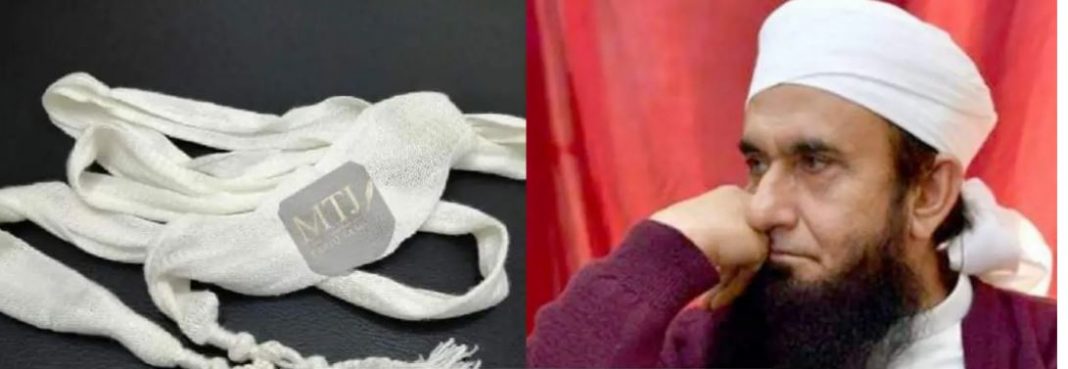Maulana Tariq Jamil, a well-known religious scholar, opened the doors to the MTJ Clothing flagship store in Karachi on Monday. Users on social media were dissatisfied with the prices of MTJ products.
The original announcement by Maulana Jamil drew some backlash. He did, however, respond to the criticism levelled at him for conducting a company in the name of religion. In a video shared on social media, he explained why he decided to start a clothing line.

Speaking of his madrassas, he said that due to depleted resources, activities had to be suspended at the onset of the pandemic. He explained that the company was not established for the sole purpose of raising profits.
The shop sells a wide range of eastern clothing, from formal to informal, from wedding gowns to breezy lawn pret. The goods are priced in the Rs2,000 to Rs5,000 range, which is competitive with the general market.

When it comes to commodity prices at MTJ clothing, consumers are dissatisfied with the variety and think it is a ripoff. Some social media users were surprised to see the price of a Nara/Azarband [the rope that keeps the shalwar up] and a vest when searching MTJ’s goods.
Also, you would be surprised to learn that a simple shalwar Nara costs Rs550, while a vest costs Rs1150.
Men took it to Twitter to express their dissatisfaction.
“Maulana Tariq Jamil, the brand ambassador of the new state of Madinah, has raised the price of Nara/Azarband to the point that a common believer can only afford it without a shalwar,” one user posted.
Also Read: Marina Khan diagnosed with COVID-19
اس میں ایسا کیا ہے
اب بھی 50 میں تاحیات گارنٹی والا تیار ہوجاتا ہے
میرے اپنے پاس اسی طرح کے پندرہ سالوں صحیح حالت میں چل رہے ہیں تب شائد 10 روپئے پڑا ہوگا۔— M.Ather Latif PML'N' (@AtherNml) April 30, 2021
“What’s the big deal with it? You can get one with a lifetime warranty for Rs50. “I’ve been using the same thing as this for 15 years in mint condition, and it would have cost me Rs10 back then,” said another.
نیو ریاستِ مدینہ کے برانڈ ایمبیسیڈر مولانا طارق جمیل نے اپنی ہٹی پر ناڑے/ آزار بند کی قیمت اتنی زیادہ رکھی ہے کہ عام مومن اسے بغیر شلوار کے ہی افورڈ کر سکتا ہے🤔 pic.twitter.com/I3liks3mtF
— کھریاں کھریاں (@RashidMurad) April 30, 2021
“Don’t do this,” one person said. This profit will be used to operate religious madrassas, brother.”
نہ کریں
اس منافع سے دینی مدارس چلنے ہیں بھائی— 👀خیال ڈیجیٹل مارکیٹنگ👀 (@KhayaaI) April 29, 2021
“Whether Nara costs Rs500 or Rs5000, no one is asking people to buy nada from such a store, and Nara has not run out in other places.”
Many people believe that religious scholars should accept reasonable profits in order to set a good precedent for those to emulate.





